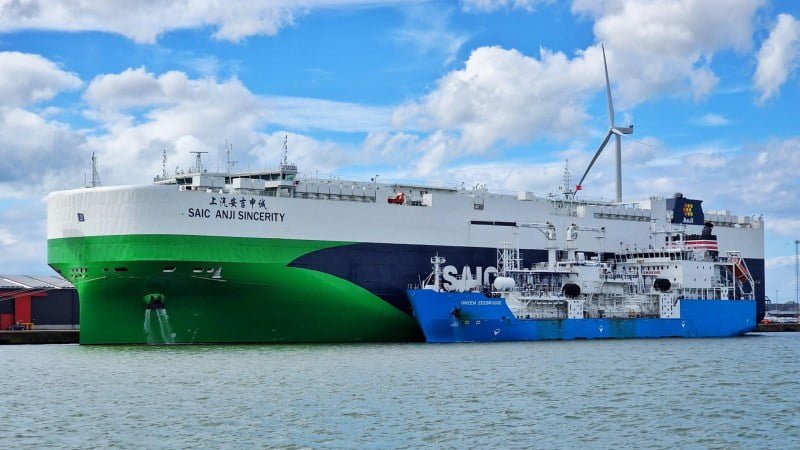Shell, a prominent energy company, has marked a significant achievement in the realm of sustainable shipping with the successful completion of its inaugural LNG bunkering operation in Zeebrugge. Over the weekend, the company safely conducted its first LNG bunkering at the port of Zeebrugge, the second-largest port in Belgium.
The operation involved LNG bunker supply to SAIC Anji Sincerity, a pure car and truck carrier (PTPC), owned by Anji Shipping (Hong Kong) Company Limited., a subsidiary of the Shanghai Automotive Industry Corporation. The success of this bunkering operation underscores Shell’s commitment to advancing sustainable solutions in the maritime industry.
Tahir Faruqui, General Manager of Shell Global Downstream LNG, expressed gratitude to the port of Zeebrugge and Hoppe Maritime Group for their collaboration, which enabled the expansion of Shell’s global marine LNG bunkering network to 20 locations across 12 countries.
Shell’s efforts align with the objectives set by the International Maritime Organization (IMO) to reduce emissions from shipping. The IMO aims to cut total emissions from shipping by at least 50% by 2050 compared to 2008 levels, along with reducing carbon intensity by at least 40% by 2030 and 70% by 2050.
Shell has committed to becoming a net-zero emissions energy business by 2050, encompassing both its operational emissions and the emissions associated with the products it sells to customers. One of the cornerstones of Shell’s strategy is the development of the world’s largest LNG bunkering network along key trading routes.
This network comprises 20 bunkering locations across 12 countries, supported by 12 bunkering vessels. Shell has successfully completed over 1000 bunkering operations across these countries, facilitating the transition to LNG as a cleaner fuel option for the shipping industry.
Through initiatives like these, Shell aims to empower its shipping sector customers to realize their decarbonization ambitions while contributing to a more sustainable future for the planet.
Source Shell

